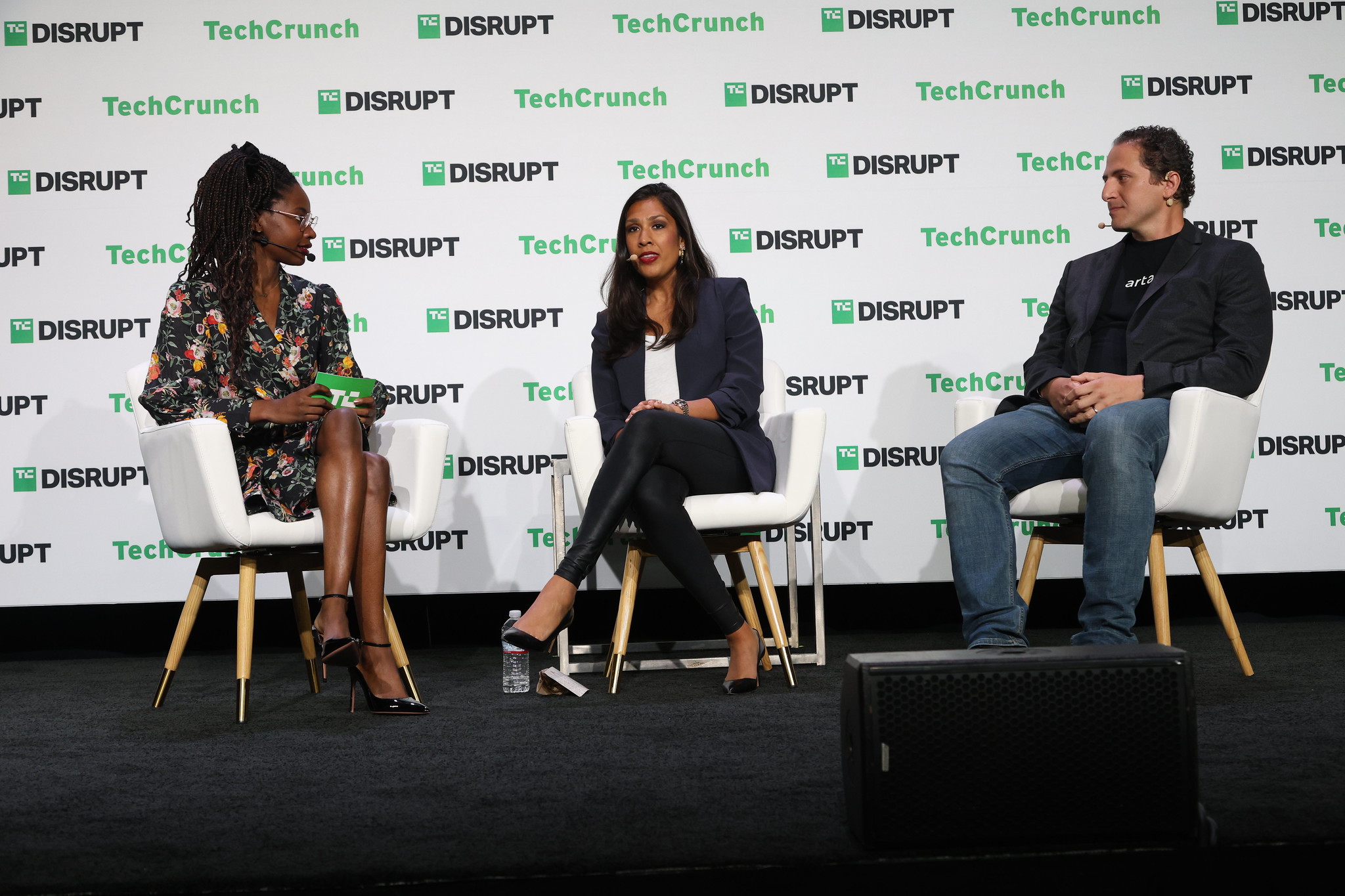Products You May Like
Welcome to Startups Weekly. Enroll here to get it in your inbox each Friday.
You understand what isn’t a fantastic thought for my vitality ranges? Having fun with every week of TechCrunch Disrupt after which getting straight on a airplane to attend a startup occasion in Oslo, Norway. I’ve solely simply gotten over my jet lag, so now it’s time to get again on a airplane and do it over again. Hrrrgh. I need to actually love startups.
Again in 2016, I spent a while in Oslo as properly, and whined about the lack of sophistication in the Norwegian startup ecosystem. I used to be curious if that they had began to determine the way to startup. The reply? Yeah, kinda. The startups themselves are vastly extra competent than they had been seven years in the past, and it’s unbelievable what seven years of ecosystem growth does. There are some nice accelerators, good assist techniques and even quite a lot of buyers beginning to pop up.
I used to be reasonably horrified and greater than just a little bit shocked to discover a contender to put on the “Let’s wreck this nascent and fragile ecosystem” crown: The buyers. Not all of ’em, clearly, however lots of the ones I spoke to had an astonishing affinity for short-sighted pondering. Particularly, I noticed fairly a typical recurrence of a mistake I noticed regularly within the U.Ok. ecosystem 15 or so years in the past: Angels and pre-seed buyers negotiating for method an excessive amount of fairness within the firms. That’s not a good suggestion — not in an business the place the monetary mannequin is powered by the outliers. Put merely: VC works even if most startups give dismal returns, however provided that a couple of startups within the portfolio are capable of ship a house run. It’s a numbers sport that falls aside in case your deal construction is such that you simply nearly assure that later-stage buyers will take one have a look at the cap desk and notice that in the event that they make investments, the founders are vulnerable to dropping curiosity. Greed now results in poor returns later.
In different phrases, demanding a 30% stake in a fledgling company is short-sighted, and founders shouldn’t stand for it. Fortunately, it’s simply solved by a shrewd investor keen to take a smaller stake within the firms for a similar sum of money. That does two issues: It’s founder-friendlier, and it means the funding turns into vastly extra aggressive in opposition to different buyers. The founders simply have to know that it’s okay to push again in opposition to unreasonable phrases, and hopefully the buyers will notice that they’re in it for the lengthy haul.
With that screed of discontent out of the way in which, let’s check out what else occurred in startup land this week!
Disrupting the disruptors

Picture Credit: M. Reinertson/The Photograph Group for TechCrunch / Flickr
Sure, sure, TechCrunch Disrupt was final week, however our dastardly crew of keyboard warriors have been laborious at work, summarizing and pulling out among the gems of the classes you might have missed. Additionally! There’s a ton of enjoyable video content material out there, in case you weren’t capable of be there in individual this 12 months.
Right here’s a couple of of our most-read tales from Disrupt:
Preserving an AI on you: Devin reviews that Sign’s Meredith Whittaker believes that AI is fundamentally “a surveillance technology.”
Builders, we nonetheless want you: Paul reviews on GitHub’s CEO saying that despite AI gains, demand for software developers will still outweigh supply.
Open a ticket: I interviewed the Atlassian CTO (and conspired with him to sneak him again onto the Disrupt stage subsequent 12 months, which I discovered hilarious, and the Disrupt planning workforce most likely disapproves of), and coated how Atlassian was late moving to the cloud, but on the ball with AI.
Traders? We don’t want no steenkin’ buyers: Dominic-Madori reviews that Bootstrapping is cool once again.
Is tech bouncing again?

Picture Credit: erhui1979 / Getty Photos
So Talkdesk may just have done its third round of layoffs in less than 14 months, nevertheless it looks as if the tide is popping: Alex reviews numbers that appear to point that tech layoffs are all but a thing of the past. Layoffs in January this 12 months hit almost 90,000, however September to date counts simply over 3,000. Does that imply every thing is hunky-dory? Properly, not fairly, however maybe the deep cuts are carried out, and everyone seems to be simply ready it out.
Anecdotally, it’s hella laborious to boost a VC fund in the mean time, however over the previous couple of weeks, there’s been no scarcity of latest fund bulletins. Right here’s among the highlights:
Getting the chain again on the tracks: Jacquelyn reviews that Blockchain Capital launches two new funds for a total of $580 million.
Recent dosh for cascadia: Kyle reviews that VC firm Fuse closes $250 million fund to spend money on Pacific Northwest startups.
Making it rain in Africa: Tage reviews that Pan-African contrarian investor P1 Ventures reaches a $25 million first close for its second fund.
In-ai-gural fund: Christine reviews that Mythos Ventures scoops up $14 million for its AI fund.
Purchasing spree: Connie reviews that Industry Ventures just raised $1.7 billion to snap up extra stakes — and firms.
2 and whatnow?: For TC+, I took a have a look at new numbers from Carta, which reveals that whereas the “2 and 20” charge construction is commonest, there are definitely a bunch of exceptions.
The ghost within the shell

Picture Credit: Oleksandr Hruts / Getty Photos
One other week, one other wall of AI protection from myself and my colleagues, because it continues to be the darling of the startup world, with some stratospheric valuations this week. OpenAI is reportedly raising at a $80 billion+ valuation, and AI-based market intel agency AlphaSense raised at a $2.5 billion price ticket. Yowzers!
Devin interviewed Anthropic’s Dario Amodei on the Disrupt stage, and the corporate’s CEO shared the startling realization that he’s not sure there are any limits to what AI can do. The Fairness podcast workforce leaped into the love fest on this week’s episode entitled “Everyone loves Anthropic,” which is smart — Amazon is writing an up to $4 billion check into the corporate.
Different AI tales y’all learn so much this week:
OK, Pc: Paul reviews that OpenAI gives ChatGPT a voice for verbal conversations.
AI see what YouTube did there: Sarah reviews that YouTube Shorts will get a generative AI feature known as Dream Display screen.
Strike out: Amanda reviews that the writers strike is over. She took a have a look at how the AI negotiations shook out. This was an attention-grabbing story following the dialog I had with a movie business AI CEO, who claimed that “nobody has lost their job because of what we do.”
High reads on TechCrunch this week
Swipe up and to the fitting: Sarah reviews that Tinder snobs can now pay $499 per month to be matched with the “most-sought after” profiles.
Ca-Splunk: Ron reviews that Cisco is planning to acquire Splunk in a $28 billion mega deal, giving shareholders a hefty premium alongside the way in which.
Sorry we virtually put you out of biz. Can we nonetheless be buddies?: Kirsten reviews that Uber is getting tighter with taxi companies.
Properly carried out, have an upboat: Amanda reviews that Reddit will start paying users real cash for standard posts.
Trying over your shoulder: Zack reviews that, sure, you need to replace your Apple gadgets once more, because spyware is bad.
